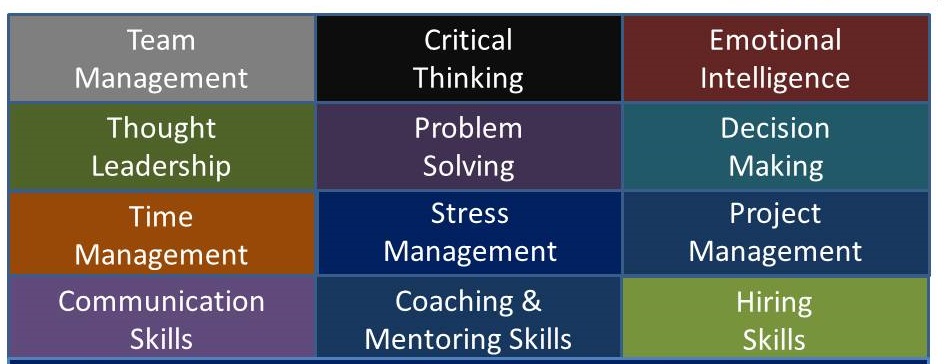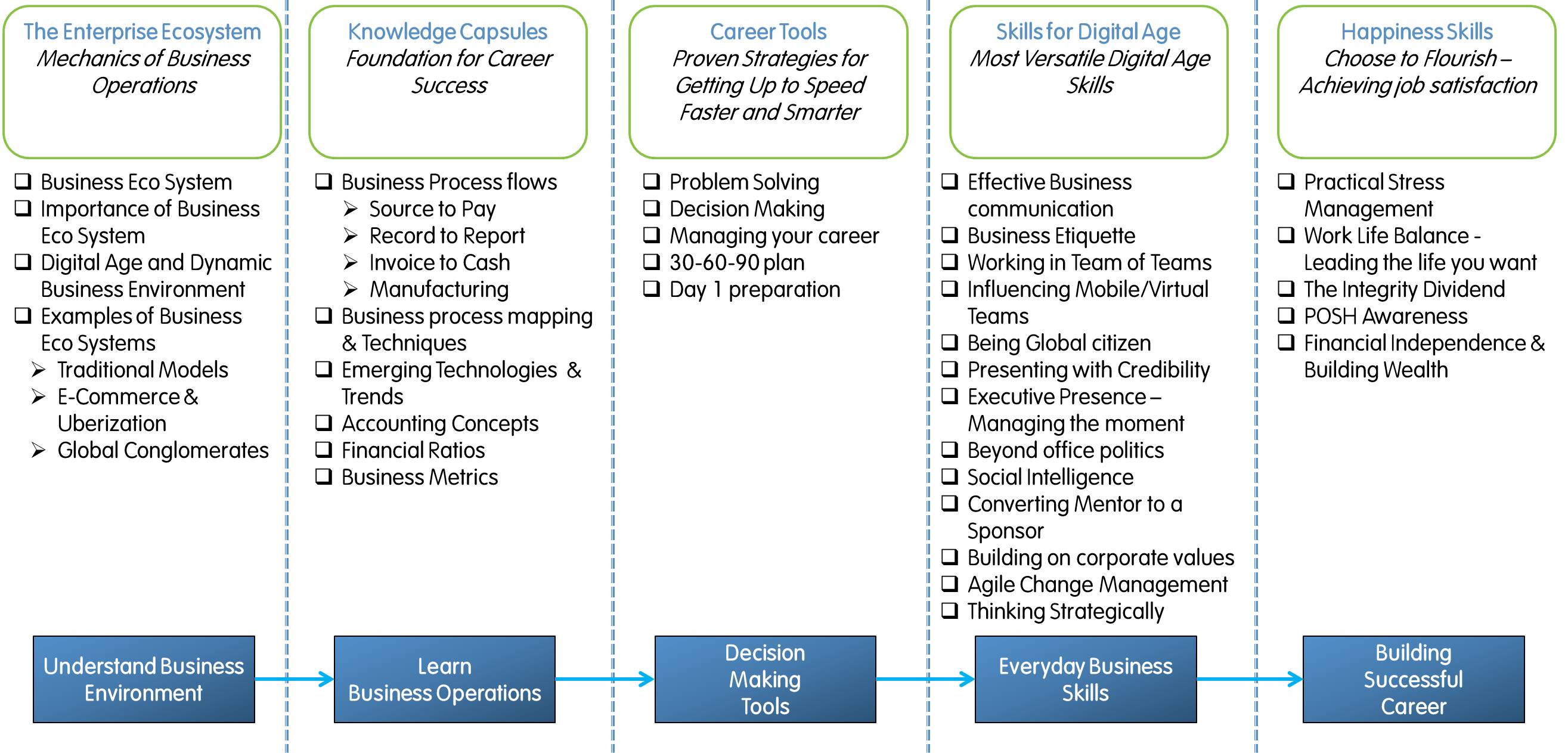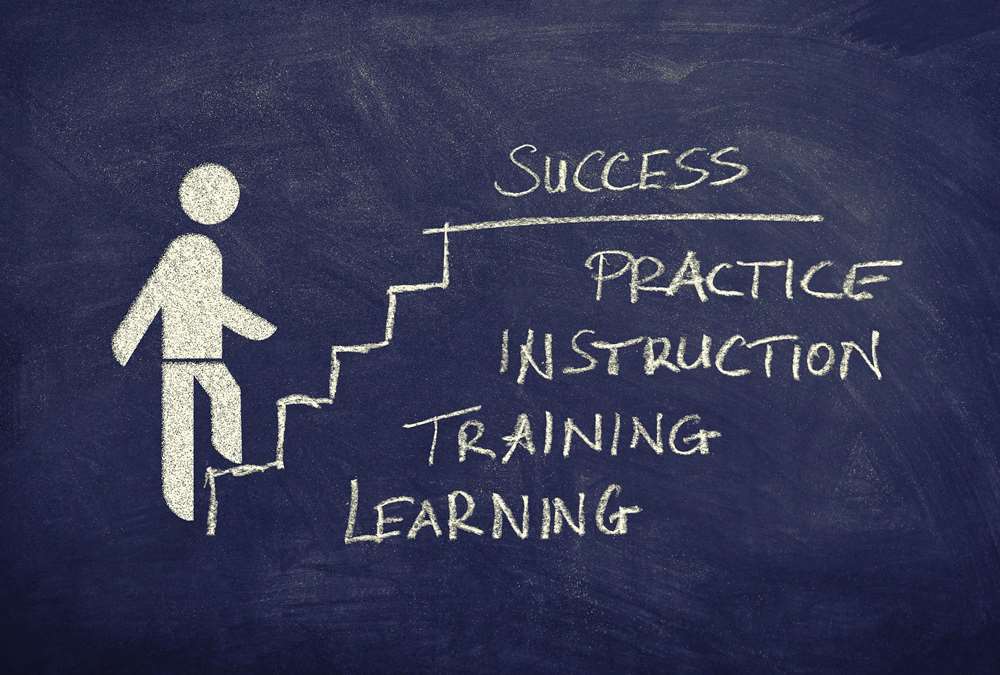- Home
- Business Processes
- Industry Knowledge
- Aerospace Industry
- Automotive Industry
- Banking Domain
- BFSI Industry
- Consumer/ FMCG Industry
- Chemicals Industry
- Engineering & Construction
- Energy Industry
- Education Domain
- Finance Domain
- Hospitality Domain
- Healthcare Industry
- Insurance Domain
- Retail Industry
- Travel and Tourism Domain
- Telecom Industry
- Leadership Skills
- eLearning
- Home
- Leadership Skills
- Career Management
- Develop your Leadership Skills
Develop your Leadership Skills
There are a number of broad skill areas that are particularly important for leaders. Today's demanding global business landscape is defined by relentless change and rising business complexity, bringing new challenges. Leadership skills provide career-enhancing resources and support you to be exceptionally successful in your career. Leaders need to provide direction to their teams and need to be able to make good and timely decisions to define and support strategic direction for the enterprise.
"The true mark of a leader is the willingness to stick with a bold course of action — an unconventional business strategy, a unique product-development roadmap, a controversial marketing campaign — even as the rest of the world wonders why you're not marching in step with the status quo. In other words, real leaders are happy to zig while others zag. They understand that in an era of hyper-competition and non-stop disruption, the only way to stand out from the crowd is to stand for something special."
-Bill Taylor
Importance of Leadership Skills
Unfortunately, many leaders don’t have access to various tools and skills that can help them navigate through the complexities of today’s dynamic business environment. Leadership skills embrace comprehensive management and leadership, team management, decision-making, project management, personal productivity, creativity, problem-solving, and communication skills helpful in addressing career problems, and guide you on how to advance your career in a positive and seemingly effortless way.
Leadership skills can help you become exceptionally effective, be a great manager and leader, and most importantly be more successful in your career. Leadership skills when combined with relevant domain and functional expertise can transform your entire career growth and help you have a fulfilling career. Leadership skills are necessary for the further growth of organizational leaders at all levels.
Leadership Skills – Definitions and Examples
A strong leadership foundation ensures the following:
1. Accountability:
- Accountability means a willingness to accept responsibility for one's actions
- Accountability for defined work assignments
- Feels accountable for team tasks and responsibilities
- Defined ownership and holds employees responsible for accomplishing business goals.
2. Coaching
- Coaching gives the individual an opportunity to define their career goals in a realistic way
- Hands-on knowledge to colleagues depending on requirements
- Is proactively training less experienced colleagues
- Leaders should establish rhythms and coach employees toward achieving goals
- Should be able to drive an increased level of engagement
- Inspires team for a deeper level of learning
3. Teamwork & Team Management
- Ability to handle team effectively of different strengths including virtual team management
- Acts as an integrating and stabilizing team member
- Integrates colleagues proactively into the team
- Enables and forces exchange
- Effective project management skills with knowledge of project management methodologies, tools, and techniques.
4. Entrepreneurial Thinking
- Ability to see things differently
- Understands and knows the business strategy of his/her country
- Acts partly as a role model for entrepreneurial thinking
- Identifies marketplace opportunities and discover the most appropriate ways and time to capitalize on them
5. Potential
- Identified talent with industry expertise
- Talents are people who the company want to retain and invest in for the future of their organization
- Stress management and keeping your cool under aggressive timelines and pressures.

6. Analytical Thinking & Critical Thinking
- Effective Decision-making skills
- Problem Solving and analytical skills to analyze a problem and provide solutions to the business.
- Is very thorough in diagnosing possible problems and analyzing data
- Takes an analytical approach to problem-solving and uses root cause analysis
- Ability to think critically and come up with out of box solutions and; build sustainable and cost-effective solutions.
7. Motivation / Inspiring
- Coaching and mentoring skills to make future leaders from your team members.
- Hiring skills to ramp up an effective and successful implementation team.
- Mobilizes commitment and creates an environment that encourages and supports participation, creativity, and flexibility
8. Proactive Learning
- Thought Leadership to create value for business
- Highly proactive about developing and acquiring new skills, knowledge, and capabilities
9. Flexibility
- Time management and project time management skills
- Recognizes the need for change and inspires others to embrace change to drive business performance
- Is geographically mobile
- Emotional Intelligence and empathy.
10. Communication
- The most important skill required of leaders.
- Communication skills with the ability to present based on the needs of the audience.
- Presents to Senior Leadership
- Uses concise & clear communication
- Expresses ideas effectively in individual and group situations
- Adapts language and terminology to the audience
How TechnoFunc helps to build Leadership Skills?
TechnoFunc is providing you with free tutorials that help you learn the practical, straightforward skills you need to excel in your career. This is a free resource where leaders at all levels can develop the higher knowledge and skills necessary to address the increasingly complex and critical nature of their roles. These tutorials have been presented in the most understandable ways to help anyone can learn and use these simple processes and techniques to make the very most of their careers. This section contains more than 1000+ leadership resources including team-building, communication, and career excellence skills, to help leaders become more confident in business acumen, financial literacy, team leadership, critical thinking skills, talent leadership, leadership accountability, and change management. The articles and video tutorials in this section help you develop your leadership skills so that you can become an exceptional leader.
Browse specific tutorials by clicking on the leadership area of your interest. Click here to see the tutorials available under leadership skills.
- Leadership Styles - Learn more than 60 Leadership Styles
- Leadership Theories - Learn 30+ Leadership Theories and their practical applications
- Career Management - Get the Career You Want
- Change Leadership - Effectively Handle Change
- Communication Skills - Listen, Talk and Reflect
- Creativity Tools - Let Your Creative Juices Flow
- Decision Making - Lead Your Way
- Management Concepts - Build a Strong Management Foundation
- Problem Solving - Sustainable Solutions to Problems
- Project Leadership - Project & Program Management
- Strategy Tools - Strategic Thought Leadership
- Stress Management - Bring More Happiness
- Team Leadership - Build Effective Teams
- Time Management – Manage your time effectively

“Before you are a leader, success is all about growing yourself. When you become a leader, success is all about growing others.”
– Jack Welch
Related Links
You May Also Like
-
Authentic leadership is an approach to leadership that emphasizes building the leader's legitimacy through honest relationships with followers which value their input and are built on an ethical foundation. The authentic leader acts upon his or her values and beliefs, and inspires others to do the same, is committed to know and develop oneself. Are you committed to developing yourself; know your motivations and the purpose of your leadership? Read this article to know more about authentic leadership style and discovering your authentic self.
-
A good leadership style is something that every effective leader must have in order to succeed, but identifying what that entails or does not entails might be difficult to understand. Most of the research on leadership focuses on the exemplary, best practices, and positive attributes of effective and successful leaders. This article talks about a new approach to learn leadership using lessons from bad leadership. That is the lessons to be learned by examining leaders who have not effectively exercised their power, authority, or influence.
-
Navigating your career journey will hopefully include a series of experiences that challenge your skills and abilities in ways that are satisfying and rewarding. Only you can manage your career. That means you must determine what things you are passionate about, what your goals are, both professionally and personally, and how much energy you are willing to invest along the way. Learn how to build an effective career path framework for yourself.
-
Develop your Leadership Skills
There are a number of broad skill areas that are particularly important for leaders. Today's demanding global business landscape is defined by relentless change and rising business complexity, bringing new challenges. Leadership skills provide career-enhancing resources and support you to be exceptionally successful in your career. Leaders need to provide direction to their teams and need to be able to make good and timely decisions to define and support strategic direction for the enterprise.
-
Team Development by Building Trust
As your team begins to work together, you need to establish a way each team member can exchange ideas and build mutual trust. Successful groups are built on trust and collaboration. A free exchange of ideas, in an open environment, will allow your team to get to know each other and enable you to check on how they work together. Learn some tips to help build team trust and establish personal bonds.
-
How often do you have a plan for how you are going to spend your day but you aren't able to complete the tasks on your plan because of unimportant tasks, interruptions, or your own procrastination? Wouldn't it be great to be able to manage your schedule and your time while avoiding, or at least controlling, these time stealers? Learn the strategies to manage your schedule while still handling interruptions and demands on your time.
-
Stress is a product of the busyness of modern life. It has assumed grave dimensions ever since the emergence of industrialism. In fact, stress is a natural, ongoing, dynamic, and interactive process that takes place as people adjust to their environment. Stress can be brought about by positive or negative life events. Distress can cause disease and eustress or positive stress can promote wellbeing and increased productivity. Learn to recognize and be responsible for your stress, and learn the ways to manage stress.
-
Technology represents tremendous value if you view it from the proper perspective. IT empowerment also has its various levels in any organization. As a CIO or IT Senior Leader, you should try to move the technology function up the value chain. Learn how to transform your service delivery organization being looked upon as another cost center to a business partner that provides valuable services and brings competitive advantage for the business.
-
Concept & Definition of Stress
Stress is a popular expression used by people in day to day life. Pressures of day to day living sometimes necessitate coping or dealing with them and stretch the body beyond its natural capacity. They are called stressors. Stress is a natural, ongoing dynamic, and interactive process that takes place as people adjust to their environment.
-
Tools for Developing Your Team
If a manager has too many weak spots in the talent of the team, the ability to empower the team members to independently execute the project is impaired. Assignments fall behind schedule or stretch out because the needed skills or knowledge are not in place when needed. To successfully execute important projects, hiring talented people, and increasing the talents of existing staff are most important.
Explore Our Free Training Articles or
Sign Up to Start With Our eLearning Courses

About Us
Learning
© 2023 TechnoFunc, All Rights Reserved









